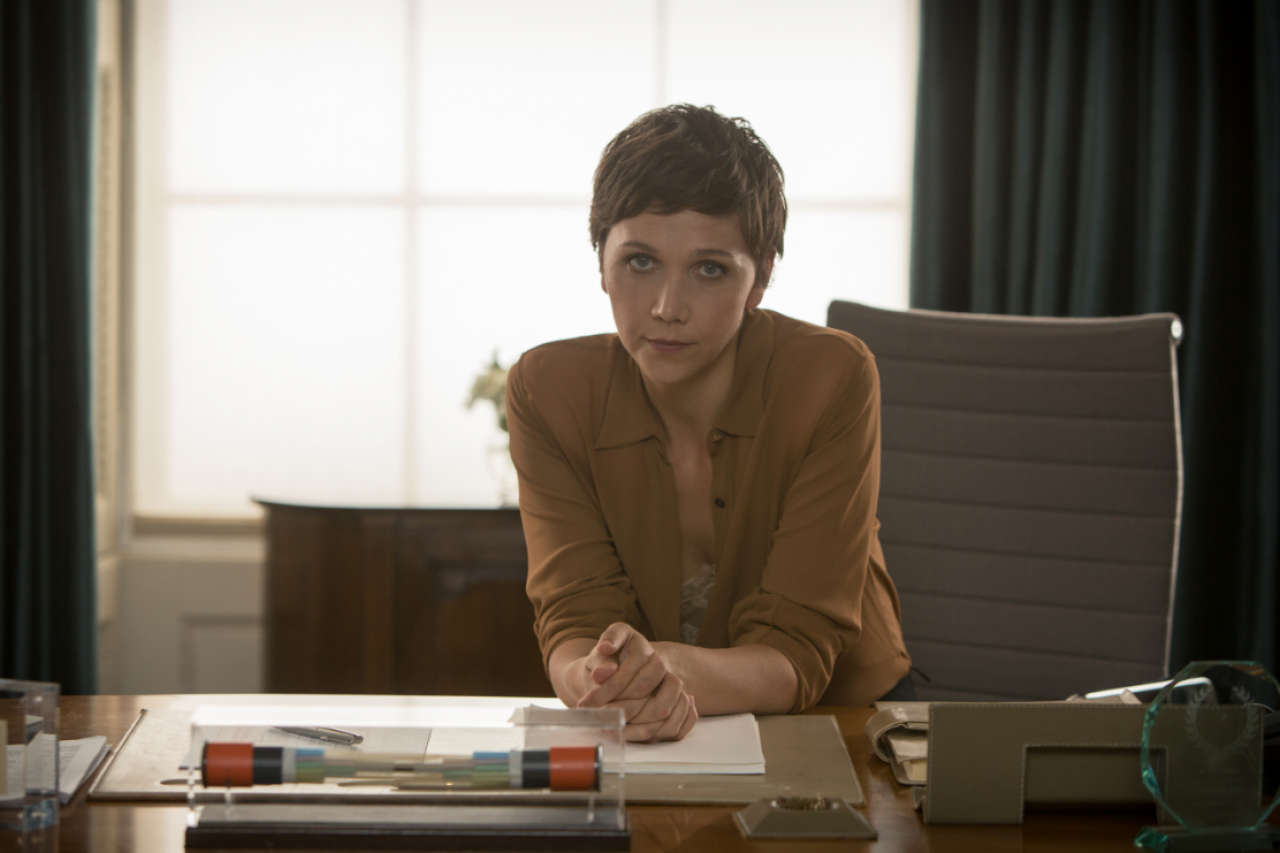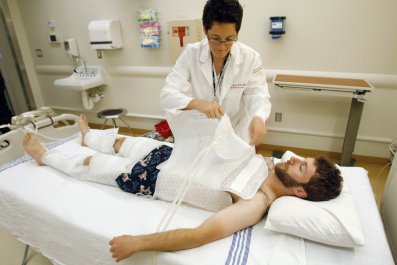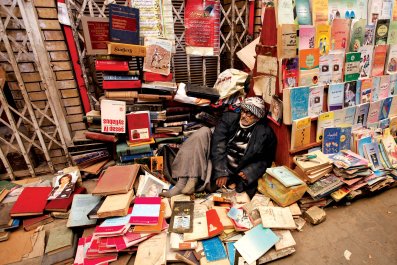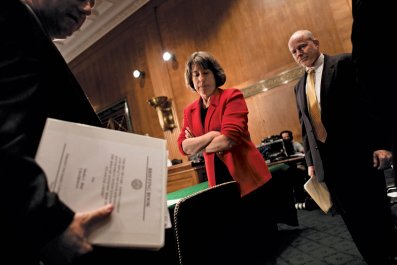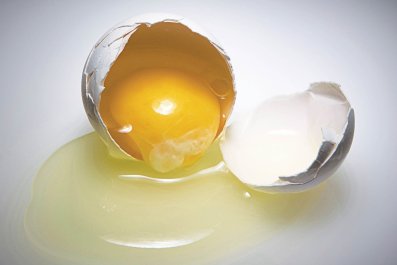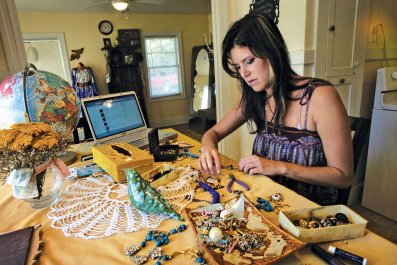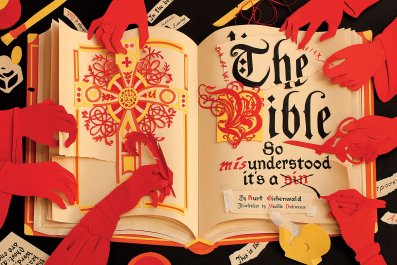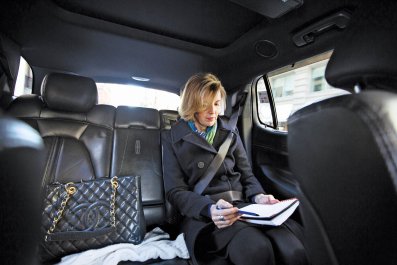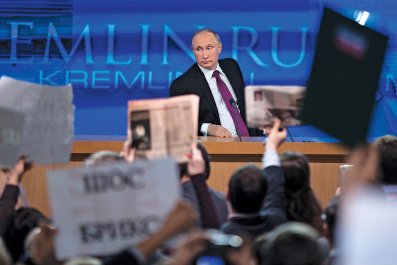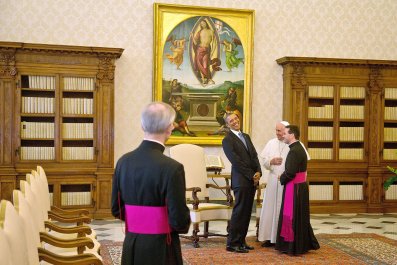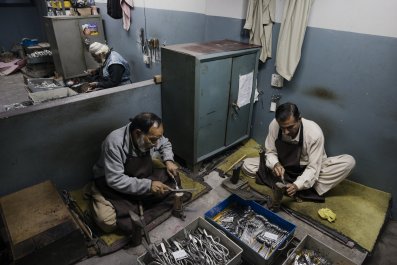Maggie Gyllenhaal isn't much of a TV person. Not much lately, at least, she confesses. She names just one series, Olive Kitteridge, that she watched recently on HBO.
That's OK. Neither am I. But I've made an exception—and so has she, in a sense—for The Honorable Woman, a taut, eight-part spy thriller that stars Gyllenhaal as Nessa Stein, an ambitious business leader caught at the moral and political edges of the Israeli-Palestinian conflict. Written and directed by the Welsh actor-turned-director Hugo Blick, the series, which lands on Netflix this month, finds Stein navigating business, bombings, rape and a very troubling kidnapping against a backdrop of international intrigue. Gyllenhaal takes on an upper-crust English accent for the part, as her character vacillates between political poise and private anguish.
Not a typical role, maybe, for the actress who first found fame as the older sister (alongside real-life brother Jake Gyllenhaal) in the polarizing weirdo-sci-fi classic Donnie Darko (2001) and then as the self-mutilating secretary-turned-BDSM-partner in Secretary (2002). But at this point, more than a decade removed from those roles, is there such a thing as a typical role for her? She's appeared in mainstream blockbusters ranging from World Trade Center to The Dark Knight, and recently in starring roles in independent dramas like Frank and Won't Back Down. And yet—
"I'd never done anything like this before—eight hours of work playing the same character," Gyllenhaal says of her first serialized television role. The episodes were filmed all at once and in order, a stark break from the rhythm of a movie. "You might have four really emotional scenes in one episode and then have another episode that feels very protected, and maybe if you're making a movie you'd say, 'Oh, I just wept, I'm not going to weep in the next scene.' But when you're doing this it feels much more human, where you could feel emotional where you never expected to. You could feel nothing where you thought you would feel emotional. I really liked that."
It was the fastest she's ever worked, too, an exhilarating and yet frightening speed: there was little time for extra takes and no space for overthinking. That it all worked she attributes in large part to director Blick, though their relationship was at first frosty. "I think I was scared," she says. "I'm not easily trusting. It takes a little while with me…. That's always a kind of leap of faith with a director you haven't worked with before. Now I would do anything with him. Because I trust him."
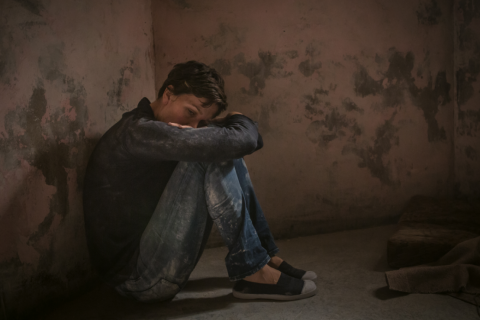
We are seated at a corner table in the restaurant of the Greenwich Hotel, a luxury spot owned by Robert De Niro in the Tribeca neighborhood of Manhattan, where the Goodfellas actor also owns a restaurant and production company. Gyllenhaal is dressed casually, in a gray sweater and jeans, though her hair remains as boyishly short as it is in Honorable Woman. She orders the roasted salmon, joking about how doing a play each night means having to consider what she eats. Oh, yeah: She'll be onstage five hours from now, starring in a Broadway production of Tom Stoppard's The Real Thing. It's a busy day, and week, and year.
Gyllenhaal, who has two daughters with longtime partner Peter Sarsgaard, has spent the morning taking 8-year-old Ramona to school and then caring for 2-year-old Gloria Ray. The demands of parenthood seem to be on her mind when I ask about the hardest part of making the series. Never mind the English accent, the intense violence sequences, the modest budget: "The hardest thing, really, was doing it and having two little kids," she says. The girls came along for the three-month filming schedule but weren't allowed on the set (Sarsgaard played baby sitter part of the time). Gyllenhaal says she won't let them watch most of her work until they're older. The exception was the 2010 Nanny McPhee sequel; on the flip side, it is tough to imagine having to watch your mother play the titular role in Secretary at any age.
Which isn't to say the kids haven't taken in their mom's stardom. "When Crazy Heart came out and a lot of people had seen it, people would stop me on the street a lot," Gyllenhaal says. (Gyllenhaal nabbed an Oscar nomination for the 2009 role.) "And Ramona—I didn't realize how much she was taking that in. At one point she said, 'Mama, what's Crazy Heart?' And I found a little piece of it that I could show her and explained it to her."
The violence that makes The Honorable Woman less than kid-friendly has, of course, a fraught political history. Nessa—Gyllenhaal's character—lives and breathes Middle Eastern politics, and the obligatory research dive posed another challenge for the actress. She eschewed textbook history lessons and took a more unorthodox approach. "I went to people very far over on each side, but very intelligent people—people I trust and respect—and asked for sources," says Gyllenhaal, who is Jewish but says her religion doesn't influence her politics. "That way, I could come up with my own opinion about what I felt was happening."
By the time the show aired on BBC and SundanceTV in July, real-world tensions in the Middle East had boiled over into another extended cycle of violence. It was one of those periods when cordial dinner parties could explode into Israeli-Palestinian screaming matches, and though Gyllenhaal spent the month obsessively reading the news, she kept quiet about the conflict. "If I said on a talk show any of the things that Nessa says, I would have had 200,000 hate emails," she says. Honourable Woman, then, proved inadvertently timely. Perspectives on Israel "were heard and accepted in the context of the show in a way that they just would not be in any other context."
And though Gyllenhaal has not typically shied away from political stances—a decade ago she sparked public ire by saying the U.S. was "responsible in some way for 9/11"—on this topic she picks her words carefully. "It's not true about everything, but about some very complicated, deep-rooted conflicts, the more information you have, sometimes the harder it is to have an immovable, unshiftable, one-sided position," she says. "It's not true for me about, like, abortion rights. I have an immoveable, one-sided opinion on that." (She's pro-choice.) "I don't feel that way about the Middle East."
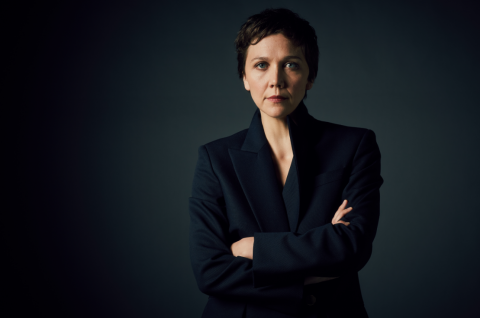
Anyway, centuries-old sectarian warfare aside, what's next for Maggie Gyllenhaal? She isn't sure, and while she's begun looking at scripts, she admits that she mostly needs a break. "You have to sleep a lot when you're doing a play!" she says. "You have to preserve energy."
But this momentary shift away from film, between the TV series and the play (her third since 2009), is not so much a conscious break as it is a reaction to waning support for independent cinema. She mentions that several million people watched the Honorable Woman episodes as they aired. "Frank, the independent movie I made the same year… I don't know if that many people watched it ever!" she says, laughing.
"The thing is, it is incredibly difficult to find a distribution life for independent films right now," Gyllenhaal adds. "I don't want to make movies that nobody sees. I mean, I'm not interested in that." She first noticed the shift around the time of the 2008 economic collapse. When Crazy Heart came out the following year, "all the independent branches of all the studios were falling apart. So we made it at Paramount Vantage maybe. And then it fell apart after we'd made it. It was gonna have no life! We were just lucky that Fox Searchlight decided to buy it. Now basically there are a few movies each year that get picked up—a few independents that get picked up for a massive distribution. But it's not the way it used to be."
"So much of the interesting work is happening on television," she concedes. "So I don't really care if it's on TV or film." She pauses. "It's not that I don't care. It's just that I want my work to be seen, if I'm going to take the time to make it."



